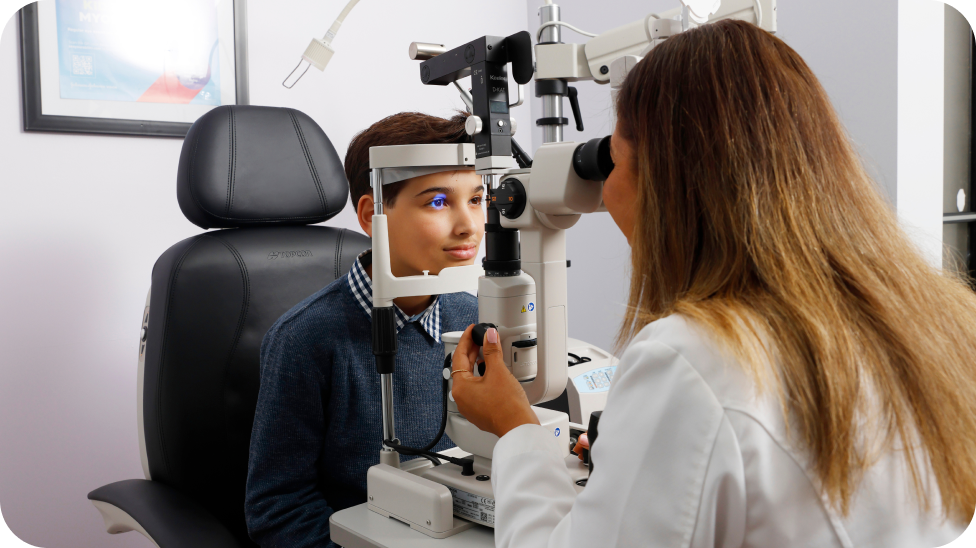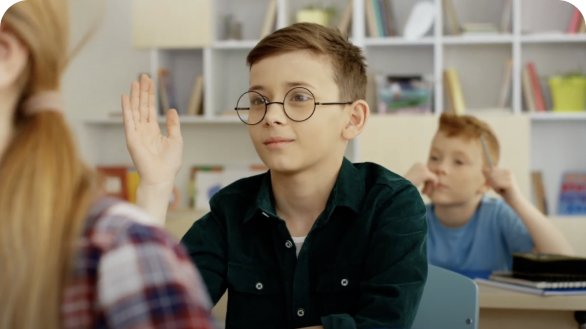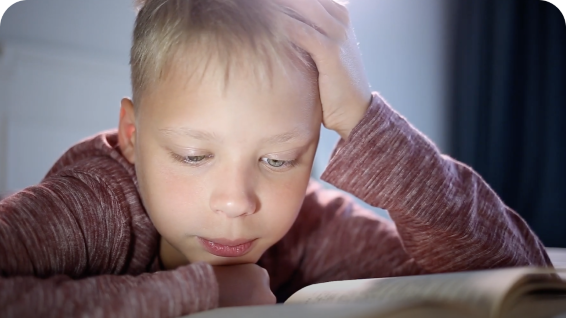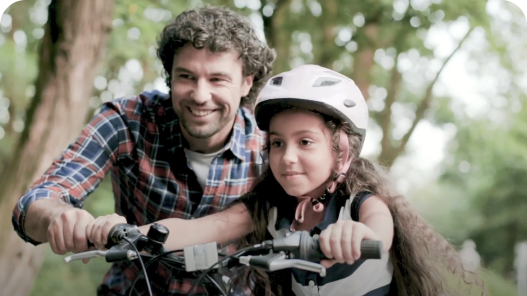Myopia Quiz
Your Results Are In...

Result
Medium
Based on this assessment, your child’s likelihood of developing myopia is: Medium
*This is an informational tool only and it is not intended to be a substitute for advice from an eye care professional.
Submit the form to learn more about myopia management and Abiliti®
With your consent, we will use your information to send you information about our products and services tailored to your interests through email. You may withdraw your consent at any time. Please read our Privacy Policy.
Required fields are marked with an asterisk.
*
What’s Next

What’s next: Measuring and monitoring children's eye health, even from an early age, is highly recommended. For example, every additional diopter of myopia (ex. prescription change from -2D to -3D) increases the risk of Myopic Macular Degeneration, a sight-threatening eye disease, by 67%9. To have the biggest impact on managing your child's myopia, it is important to act early. An eye doctor who practices myopia management can diagnose myopia and provide treatment options to manage your child's myopia.
References:
- Chua SY et al. Age of Onset of Myopia Predicts Risk of High Myopia in Later Childhood in Myopic Singapore Children. Opthal Physiol Opt 2016;36:388-94.
- Rudnicka AR, Kapetanakis VV, Wathern AK, et al Global variations and time trends in the prevalence of childhood myopia, a systematic review and quantitative meta-analysis: implications for aetiology and early prevention. Br J Ophthalmol. 2016 Jul;100(7):882-890
- Tedja MS et al. IMI - Myopia Genetics Report. Invest Ophthalmol Vis Sci 2019;60:M89-M105.
- Huang et al. The Association between Near Work Activities and Myopia in Children: A Systematic Review and Meta-Analysis. PLoS One 2015;10:e0140419.
- Wen L et al. Objectively measured near work, outdoor exposure and myopia in children. British Journal of Ophthalmology Published Online First: 19 February 2020. doi: 10.1136/bjophthalmol-2019-315258.
- French AN, Ashby RS, Morgan IG, Rose KA. Time Outdoors and the Prevention of Myopia. Experimental eye research 2013;114:58-68.
- Morgan IG, French AN, Ashby RS, et al. The Epidemics of Myopia: Aetiology and Prevention. Prog Retin Eye Res 2018;62:134-49.
- Xiong et al. Time spent in outdoor activities in relation to myopia prevention and control: A meta-analysis and systematic review. Acta Ophthalmol. 2017 Sep;95(6):551-566.
- Bullimore MA, Brennan NA. Myopia-control: Why Each Diopter Matters. Optom Vis Sci 2019;96:463-5
PP2023ABLM4114 v2


